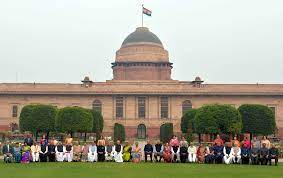The Ordinance-making power of the Governor of a state is an important provision in the Indian Constitution that enables the state executive to take immediate action in situations that require urgent legislation. The Governor’s power to promulgate an ordinance is similar to that of the President of India, but it is limited to the state level. This article will discuss the ordinance-making power of the Governor of a state in India.

Table of Contents
What is an Ordinance?
An ordinance is a temporary legislation that has the same effect as an Act of the legislature. The Governor can promulgate an ordinance under certain circumstances when the state legislature is not in session or is not able to pass legislation due to other reasons.
The Governor can issue an ordinance in the following situations:
- When the state legislature is not in session and the Governor is satisfied that there are circumstances that require immediate action.
- When a bill passed by one House of the state legislature is pending before the other House, and the Governor is satisfied that the bill is of immediate importance.
- When the state legislature is unable to pass a bill due to a disagreement between the two Houses.
Limitations on the Governor’s Power to Issue Ordinances
The Governor’s power to issue an ordinance is not absolute, and there are certain limitations imposed by the Constitution, such as:
- The ordinance can only be promulgated on the advice of the Council of Ministers of the state government.
- The ordinance must be laid before the state legislature when it reassembles, and it will cease to operate at the expiration of six weeks from that date.
- The ordinance-making power of the Governor cannot be used to amend the Constitution.
Advantages of the Ordinance-making Power of the Governor
The ordinance-making power of the Governor allows the state executive to respond to urgent situations that require legislation when the state legislature is not in session or is unable to pass a bill due to other reasons. It is an essential tool for the state government to ensure that the state can respond to urgent problems that require immediate attention.
Disadvantages of the Ordinance-making Power of the Governor
The power to issue an ordinance is a temporary measure and can be misused if not used judiciously. The power can be used to bypass the legislative process and can lead to the concentration of power in the executive branch of the government. The Constitution places certain limitations on the Governor’s power to issue ordinances to prevent the misuse of this power.
Comparison of Ordinance Making Power
| Aspect | President’s Power | Governor’s Power |
|---|---|---|
| Extent of Power | Can promulgate ordinances for the entire country | Can promulgate ordinances only for the state for which they are appointed |
| Source of Power | Article 123 of the Indian Constitution | Article 213 of the Indian Constitution |
| Nature of Power | Can promulgate ordinances when either house of the Parliament is not in session | Can promulgate ordinances when the legislative assembly of the state is not in session |
| Limitations | The ordinance must be laid before both houses of Parliament within six weeks of the reassembly of Parliament | The ordinance must be laid before the legislative assembly of the state within six weeks of its reassembly |
| Validity | The ordinance has the same force and effect as an Act of Parliament, but it can be challenged in court | The ordinance has the same force and effect as an Act of the state legislature, but it can be challenged in court |
Conclusion
In conclusion, the ordinance-making power of the Governor of a state is an important provision in the Indian Constitution that enables the state executive to take immediate action in situations that require urgent legislation. However, this power must be used judiciously to prevent its misuse and concentration of power in the executive branch of the government. The Constitution places certain limitations on the Governor’s power to issue ordinances to ensure that this power is not misused.